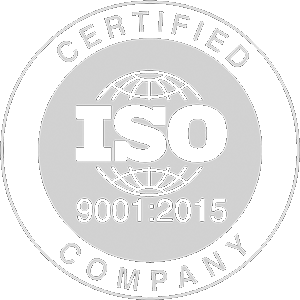PTFE plays a vital role in both the medical and pharmaceutical industries. Its biocompatibility, non-toxicity, and resistance to high-purity chemicals make it a preferred material in the production of sterile products, cleanroom equipment, and medical devices.
In the medical field, PTFE is found in applications ranging from surgical implants to tubing, filtration systems, and consumer items like dental floss. It can tolerate sterilization processes such as autoclaving and gamma radiation, and its lubricious surface reduces friction in devices used inside the human body.
In pharmaceutical manufacturing, PTFE seals and diaphragms are used in pumps, valves, and mixers that must withstand aggressive solvents and sanitization procedures. Its smooth surface resists bacterial buildup and allows for easy cleaning, while its non-reactive nature ensures that no unwanted chemicals leach into pharmaceutical products.
- Ultra-High Purity: PTFE offers exceptional chemical inertness, minimizing contamination risks in wafer fabrication.
- Thermal Resistance: Maintains stability during extreme temperature cycling common in semiconductor processes.
- Dielectric Strength: Provides reliable electrical insulation critical for sensitive electronic components.
- Low Outgassing: Releases minimal volatile compounds, preserving cleanroom environments.
- Chemical Resistance: Resistant to aggressive etchants, solvents, and acids used in semiconductor processing.
Medical Industry
- Biocompatible Coatings: PTFE coatings are applied to medical instruments and equipment to provide a non-stick, biocompatible surface, facilitating easier cleaning and reducing the risk of contamination.
- Biopsy and Diagnostic Tools: PTFE can be used in diagnostic equipment and tools, including biopsy devices, due to its biocompatibility and non-reactive nature.
- Dental Products: PTFE is used in dental products like floss and implant components due to its biocompatibility and low friction properties.
- Drug Delivery Systems: PTFE is used in drug delivery systems, such as coatings for stents or as part of implantable reservoirs for controlled drug release.
- Implantable Devices: PTFE can be used in certain implantable medical devices like vascular grafts, artificial heart valves, and shunts because of its biocompatibility and resistance to blood contact.
- Medical Devices: PTFE is used in medical devices such as catheters, guidewires, and sheaths due to its biocompatibility and low friction properties. It helps reduce tissue damage during insertion and removal.
- Orthopedic Implants: PTFE coatings are used on orthopedic implants, such as hip and knee joint replacements, to reduce friction and wear within the joint.
- Radiology: PTFE is used as an insulating material in radiology and imaging equipment to maintain electrical insulation and prevent interference.
- Surgical Instruments: PTFE-coated surgical instruments, like forceps and scissors, are used in minimally invasive procedures, where low friction is essential for smooth operation.
Pharmaceutical Industry
- Bioreactors: PTFE components are used in bioreactors for cell culture applications due to their biocompatibility and resistance to chemical sterilization processes.
- Gaskets and Seals: PTFE gaskets and seals are used in pharmaceutical processing equipment to prevent leaks and contamination. They are resistant to a wide range of chemicals and can maintain a sterile environment.
- Laboratory Equipment: PTFE is used in the manufacture of laboratory equipment such as beakers, stirring bars, and containers, as it is non-reactive and easy to clean.
- Lining Materials: PTFE lining is applied to pipes, tanks, and vessels in pharmaceutical manufacturing to protect against chemical corrosion and maintain product purity.
- Pharmaceutical Coating: PTFE coatings are applied to various equipment surfaces to reduce adhesion, making it easier to clean and preventing cross-contamination in pharmaceutical manufacturing.
- Tubing and Hoses: PTFE tubing and hoses are used to transport pharmaceutical liquids and gases because they are biocompatible, chemically inert, and can withstand high temperatures.
- Valve Components: PTFE valve seats, diaphragms, and O-rings are used in pharmaceutical valves to ensure a chemically inert and reliable sealing mechanism.
- Ensures Patient Safety: PTFE’s biocompatibility minimizes adverse reactions and contamination risks.
- Supports Sterile Processing: Resistant to sterilization ensures product integrity and compliance.
- Reduces Equipment Downtime: Chemical resistance limits corrosion and wear, lowering maintenance needs.
- Maintains Purity: Prevents chemical leaching and contamination in sensitive medical and pharmaceutical environments.
- Improves Device Performance: Low friction properties extend life and functionality of moving parts.
PTFE remains an indispensable material in the semiconductor sector, supporting advanced manufacturing technologies with unmatched purity, durability, and electrical performance.
